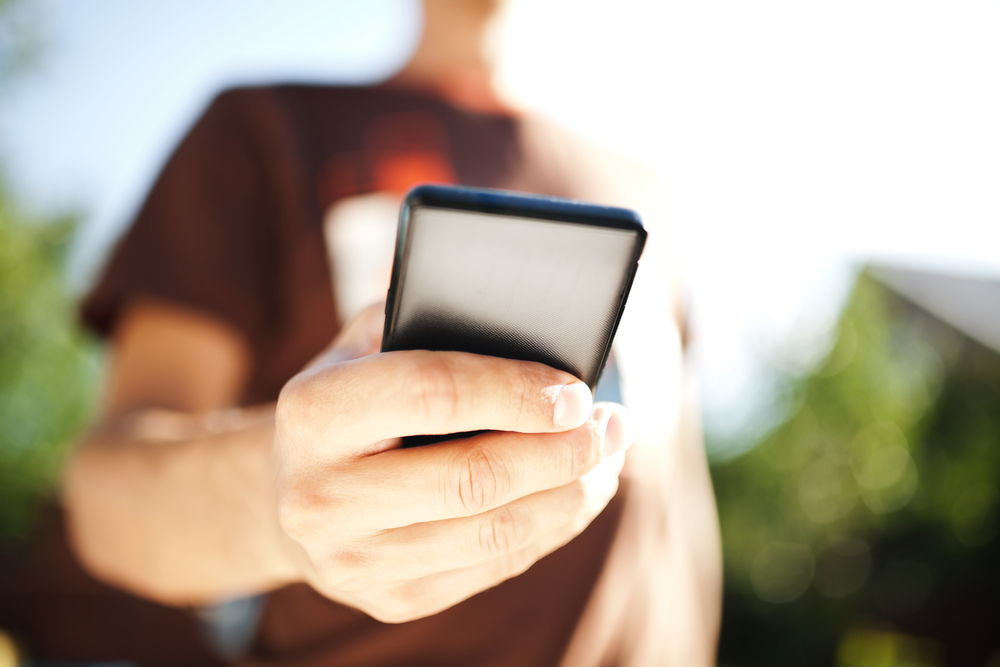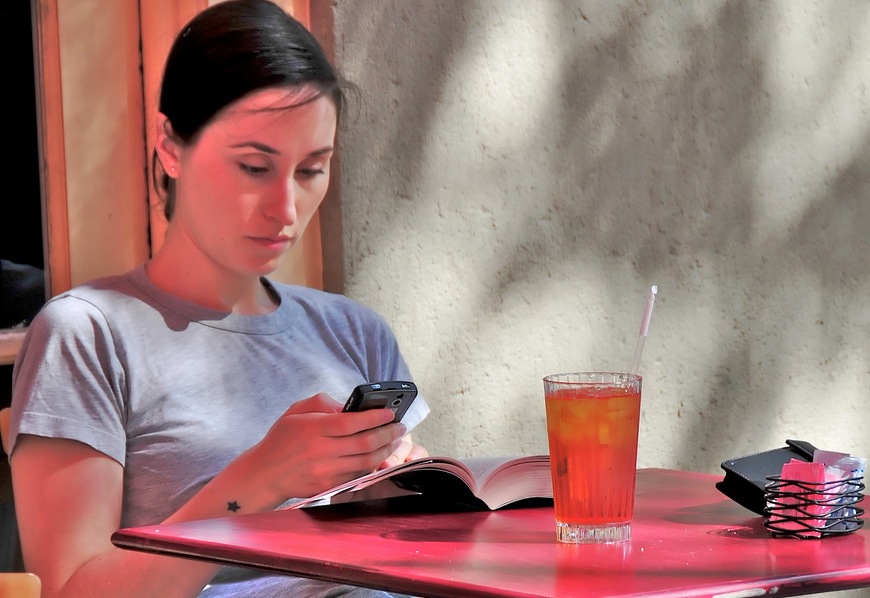In a previous blog regarding smoking cessation I observed that quitting tobacco is easier than staying quit with 75% of quitters relapsing within 12 months (Agboola, 2009).
Unfortunately the same is true for alcohol use disorders. Indeed, relapse rates following detoxification can be as high as 80% if there is no continuing treatment (Moyer and Finney, 2002). This may be particularly problematic in regard to alcohol use as the medical consequences of detoxification can escalate with multiple withdrawals (Lechtenberg and Worner, 1990).
It is notable that relapse rates are reduced if there is some continuous pharmacological (Rösner et al, 2010) or cognitive (Carroll, 1996) treatment following inpatient detoxification. So obviously, continued contact seems to be the solution, but with the NHS already under financial strain how much time and resources can be devoted to such ongoing treatment?
One possible solution is to harness hand-held technology such as smartphones to deliver flexible, continuous support for recovering alcoholics. This, theoretically, could offer cost-effective continuing care, that will reduce relapse rates and ultimately improve the chances of continued abstinence.
Recently a team of US-based researchers conducted a randomised controlled trial (RCT) into the efficacy of a smartphone app: Addiction-Comprehensive Health Enhancement Support System (A-CHESS). They used a sample of alcohol dependent individuals who were about to leave residential treatment. The app was designed to offer flexible emotional and instrumental support if and when the patient needs it.

The A-CHESS app is designed to provide emotional and instrumental support to patients when they need it.
Methods
The current study was an RCT of 349 alcohol dependent patients who had been in a residential treatment program.
The five treatment centres involved all made use of cognitive behavioural therapy (CBT), motivational interviewing and psychoeducation (all conducted in groups) although two of the centres also included case management and individual counselling. Patients were randomised into the A-CHESS condition or treatment as normal, which did not include continuous aftercare.
The A-CHESS app offers a range of different features including a panic button when individuals feel tempted to drink alcohol, which gives them different options to deal with temptation or stress, a high risk location alert and audio relaxation guides. Examples of the services in the app can be found on the University of Wisconsin-Madison CHESS website).
The primary outcome was risky drinking days, defined as 4+ (males) or 3+ (females) standard drinks in an hour. The authors also investigated the impact of A-CHESS on abstinence and negative consequences of drinking (job loss, arrest etc). These outcomes were reported at 4, 8 and 12 months post-residential treatment.
Finally, perceived confidence in avoiding alcohol use (drug-taking confidence questionnaire), relatedness (important people survey) and autonomous motivation to control drinking (self-regulation questionnaire) were measured as possible mediators of the effect the app has on alcohol use.

Patients were randomised into the A-CHESS condition or treatment as normal, which did not include continuous aftercare.
Results
Patients receiving the A-CHESS program had significantly fewer overall risky drinking days (1.39, SE= 0.34) than those in the control condition (2.75, SE= 0.34). This overall effect was driven by significant differences at 4 months and 12 months, although there was no group difference at 8 months. However it is important to note that although significant effect sizes were all small for all these group differences.
Relapse was lower in the A-CHESS group at months 8 (OR 1.70: 95% CI 1.05 to 2.96), 12 (OR 1.94: 95% CI 1.14 to 3.31) and overall (OR 1.65: 95% CI 1.05 to 2.57), although there was no difference at 4 months. There was no effect on negative consequences of drinking.
Finally, the mediation analysis found that only changes in perceived confidence (i.e. scores on drug-taking confidence questionnaire) mediated the effect of A-CHESS on risky drinking days, with this effect at four months only.
Conclusions
Overall the findings do seem promising, with statistically significant effects on risky drinking and relapse at multiple time points. Indeed, using smartphones to deliver treatment when it is needed most seems like a cost effective intervention that may reduce the burden on the NHS.
Limitations
However, there are some caveats to this conclusion:
- Some refinement is needed, effect sizes for the intervention are small so any gains are actually fairly limited.
- It is important to remember that although we view smartphones as ubiquitous there is still a digital divide in the UK, suggesting that such interventions will be more useful to some groups than others. Indeed many people may have no familiarity with smart phones and struggle with such technology.
- I would recommend treating the mediation analysis very cautiously; all mediators are considered separately and at each time point (and possibly overall, the paper is not clear). This suggests the authors ran at least nine joint significance tests, with only one finding evidence for mediation. Furthermore, the authors do not report confidence intervals for the significant effect described. I would be reticent to make any firm conclusions based upon such an analysis.

Can mobile apps help recovering alcoholics?
Image: Ed Yourdon CC BY-NC-SA 2.0
Links
Gustafson DH, McTavish FM, Chih M, Atwood AK, Johnson RA, Boyle MG, Levy, SM, Driscoll H, Chisholm, SM, Dillenburg L, Isham A, and Shah D (2014) A Smartphone Application to Support Recovery From Alcoholism: A Randomized Clinical Trial. JAMA Psychiatry. doi:10.1001/jamapsychiatry.2013.4642
Agboola SA, Coleman TJ and McNeill AD (2009) Relapse prevention in UK Stop Smoking Services: a qualitative study of health professionals’ views and beliefs. BMC Health Services Research 9:67 doi:10.1186/1472-6963-9-6
Moyer A and Finney JW (2002) Outcomes for untreated individuals involved in randomized trials of alcohol treatment. Journal of Substance Abuse Treatment 23: 2 DOI: 10.1016/S0740-5472(02)00264-7. [PubMed abstract]
Lechtenberg R and Worner TM (1990) Seizure Risk With Recurrent Alcohol Detoxification Archives of Neurology 47: 5. doi:10.1001/archneur.1990.00530050055012. [PubMed abstract]
Rösner S, Hackl-Herrwerth A, Leucht S, Lehert P, Vecchi S, Soyka M (2010). Acamprosate for alcohol dependence. Cochrane Database of Systematic Reviews 9. Art. No.: CD004332. DOI: 10.1002/14651858.CD004332.pub2.
Carroll, K M. (1996) Relapse prevention as a psychosocial treatment: A review of controlled clinical trials. Experimental and Clinical Psychopharmacology, 4:1, doi: 10.1037/1064-1297.4.1.46 [Abstract]

RT @Mental_Elf: Can mobile apps help recovering alcoholics?http://t.co/pUAwW7RQcl
Can mobile apps help recovering alcoholics?: Paul Christiansen reports on a recent RCT that investigates how a… http://t.co/CcM95CDDoz
RT @field_matt: New @Mental_Elf post from @LivUniPsyc @ChristiansenLiv on mobile phone apps for alcoholism treatment http://t.co/VHSnsR6SNg
@Mental_Elf this could be so helpful for my patients, as always, thank you Mental-Elf.
my new @Mental_Elf blog, smartphone assisted recovery for alcohol dependent patients http://t.co/hKHL63ktR7
I don’t think so. I am using one at present, called Breaking Free. It’s pretty lame and doesn’t even have the drug I take on it. The assumption or bench mark is abstinence. I have also noticed the system makes its own decisions. I also used PLU patients like us but found myself frustrated with their limitation, emotions where either very good, good, bad or very bad. I did ask but they didn’t respond to my question about bad feelings not being in the DSM5
Thanks for sharing that Will. The app used in this trial we’ve blogged about today is called A-CHESS. There’s more info about it in the blog itself. I guess there is a considerable amount of variation from one app to another, and even if an app comes out well in a piece of research, that doesn’t mean it’s going to work for everyone.
According to TV adverts, smartphones can do just about everything these days. But can they help drinkers stay dry? http://t.co/d0QByx7ZBj
@Mental_Elf The biggest concern with this research is that commissioners will use it to justify replacing a support worker with an app
@DocMartin68 @Mental_Elf Apps are cheaper but can only substitute where equal effect is achieved-unlikely so act as complements @MHARG_york
@DocMartin68 @Mental_Elf Let’s hope this doesn’t happen. Human contact is a must. Let technology compliment this.
Can mobile apps help recovering alcoholics? http://t.co/yNHE3hGUBR
RT @Mental_Elf: Today @ChristiansenLiv reports on a @JAMAPsych RCT of a smartphone app to support recovery from #alcoholism http://t.co/d0Q…
Bethan Davies liked this on Facebook.
Lisa Eden liked this on Facebook.
The Mental Elf liked this on Facebook.
RT @Mental_Elf: Smartphone app reduces relapse rates in recovering alcoholics http://t.co/pUAwW7RQcl
Can mobile apps help recovering alcoholics? http://t.co/56Umemo37R via @sharethis
Smartphone app reduces relapse rates in recovering alcoholics http://t.co/qfNO3X5iAT via @Mental_Elf cc @blogdoutortech
http://www.suboxonetalkzone.com/new-mobile-app-2/
Decent app
Can mobile apps help recovering alcoholics? Another great @Mental_Elf blog post by @ChristiansenLiv http://t.co/3UScvG0elN
Don’t miss: Can mobile apps help recovering alcoholics? http://t.co/d0QByx7ZBj
Nicola Davies liked this on Facebook.
@Mental_Elf Unlike a browser Apps are dedicated to a specific task. & virtual drinking could satisfy need.
aplicación del movil para afrontar el #alcoholismo – Can mobile apps help recovering #alcoholics? http://t.co/p1tTgflG3X via @sharethis
UK study finds that mobile apps may be useful in preventing recovering alcoholics from relapsing: http://t.co/J6ZMod6nd3 via @Mental_Elf
Can mobile apps help recovering alcoholics? http://t.co/zhj8laMzc5 #alcoholism
Nicola Davies liked this on Facebook.
Bethan Davies liked this on Facebook.
Lisa Eden liked this on Facebook.
The Mental Elf liked this on Facebook.
This JAMA Psychiatry paper has also been covered by our colleagues at the Evidence-Based Mental Health journal: http://ebmh.bmj.com/content/early/2014/09/17/eb-2014-101927?papetoc
Cheers,
The Mental Elf
Can you please tell me the specifics of the study you quote? When was this conducted?
Hi Ilanna,
The study Paul wrote about in his blog is:
Gustafson DH, McTavish FM, Chih M, Atwood AK, Johnson RA, Boyle MG, Levy, SM, Driscoll H, Chisholm, SM, Dillenburg L, Isham A, and Shah D (2014) A Smartphone Application to Support Recovery From Alcoholism: A Randomized Clinical Trial. JAMA Psychiatry. doi:10.1001/jamapsychiatry.2013.4642
The full-text is available for free: http://www.ncbi.nlm.nih.gov/pmc/articles/PMC4016167/
The study took place in 2010-2012 and was published in 2014.
Cheers,
André